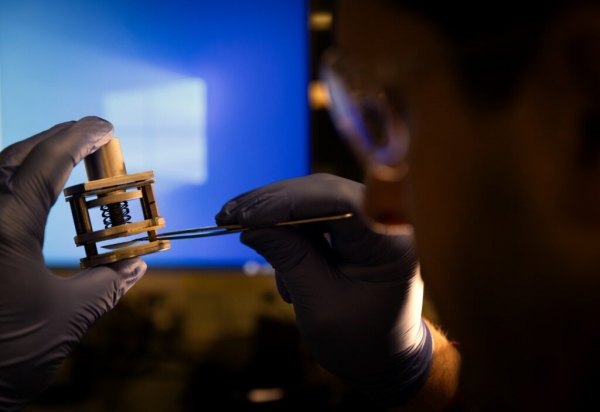Water desalination plants could replace expensive chemicals with new carbon cloth electrodes that remove boron from seawater, an important step of turning seawater into safe drinking water.
A study describing the new technology has been published in Nature Water by engineers at the University of Michigan and Rice University.
Boron is a natural component of seawater that becomes a toxic contaminant in drinking water when it sneaks through conventional filters for removing salts. Seawater’s boron levels are around twice as high as the World Health Organization’s most lenient limits for safe drinking water, and five to 12 times higher than the tolerance of many agricultural plants.
Jovan Kamcev, an assistant professor of chemical engineering and macromolecular science and engineering at U-M, places a filter membrane between two electrodes, which measure how well the membrane conducts electricity. This helps his team predict how well it can purify water. (Photo Credit: Marcin Szczepanski, Michigan Engineering)
Sustainability Health Sci/Tech Top Stories

